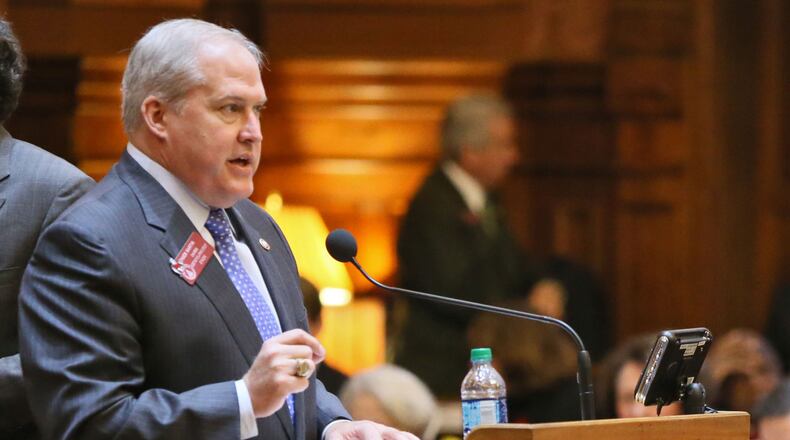High marks go today to Chuck Martin, chairman of the House Higher Education Committee, who just wrapped up a four-hour hearing on several controversial measures.
A Republican lawmaker from Alpharetta, Martin provided an exemplar for how to run a fair and congenial legislative meeting even with an agenda full of divisive issues, including allowing immigrants to pay in-state tuition at public campuses.
Among the other proposed new laws on the agenda today at House Higher Ed:
Eliminating the ACT/SAT requirement to qualify for the Zell Miller full tuition HOPE Scholarship
Broadening language protecting religious, political or ideological student organizations on state college campuses
Expanding HOPE options and funds for students pursuing associate degrees at our technical colleges
The most controversial bill and the one with the most testimony would allow DACA recipients -- young immigrants who have been granted a reprieve from deportation -- to pay in-state tuition at most Georgia public colleges. Sponsored by Kasey Carpenter, a Republican out of Dalton, House Bill 997, the Georgia Resident In-State Tuition Act, exempts research universities where admission is competitive.
Martin concluded the meeting and the sometimes-emotional comments on the DACA bill by decrying the degradation of political discourse over the years. His closing remarks are worth sharing here: (Watch the full hearing to see what political discussion should look like in America.)
Here is what Martin said:
I understand there are passionate opinions on all sides of this. I do want to say this, and it is sure to make people mad on both sides of this issue. I, for one, have been down here for a little while…The political discourse since I've been here has gone from bad to worse. I say that to say today I am glad for the respectful conversation we had back and forth. And we're going to work on this bill. It may or may not pass. That will be the will of the committee.
I just want to say publicly from my standpoint that I am tired of these individuals being weaponized by both political parties. I am just going to say that for the four people left in this room and whoever may be listening. This should not be a partisan thing. We should find a way to do things that are good for individuals, that are good for taxpayers of Georgia and that are good for the University and Technical College systems. We shouldn't have to weaponize these individuals or the immigration system to get to there.
This committee is going work toward an answer, whether we get one this year or get this passed. That will be for the committee to decide, but we are going to work in good faith to represent the citizens of Georgia on this matter. And I look for each and every member of this committee and those who testified before us today to help with that.
About the Author
The Latest
Featured



